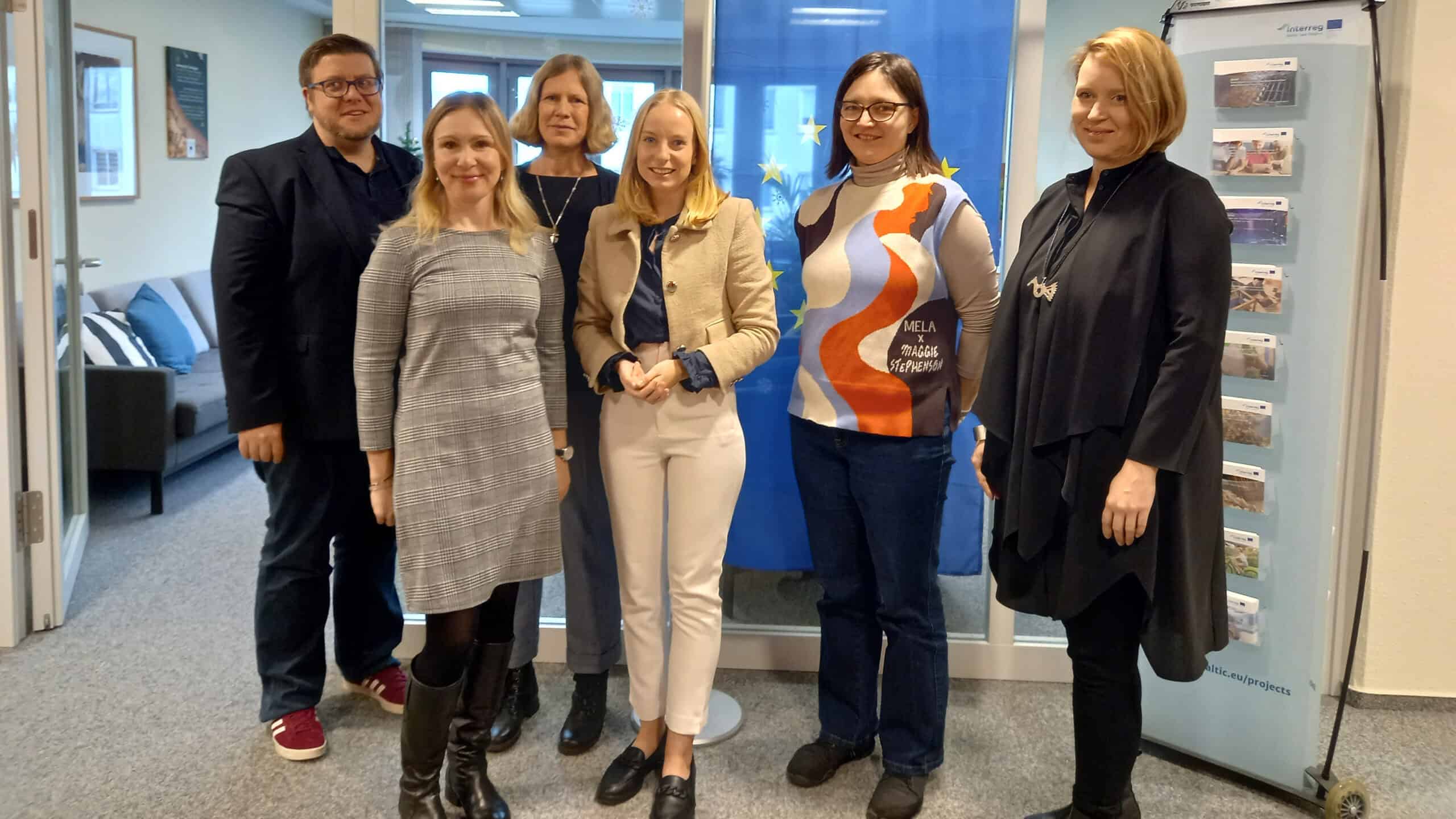
10 January 2025
Interreg: tangible benefits for local communities; an inspiring example for others
Interview with Sabrina Repp, Member of the European Parliament.
What should be the role of Interreg in the future Cohesion Policy? How does Interreg help build a more integrated Europe? Listen to Sabrina Repp from the European Parliament, an active member at the REGI Committee, who is dedicated to supporting regional development. Based in Rostock, just like the Programme’s main office, she took her time to better get to know Interreg Baltic Sea Region projects and share her visions for the future.
Why is Interreg transnational cooperation important for the region Mecklenburg-Vorpommern and other regions around the Baltic Sea?
Sabrina Repp: Transnational cooperation under Interreg is of crucial importance for Mecklenburg-Vorpommern and the Baltic Sea region because it addresses shared challenges and leverages collective opportunities. For Mecklenburg-Vorpommern, a region deeply connected to the Baltic Sea, Interreg fosters innovation, strengthens economic resilience, and deepens relationships with neighboring countries. Furthermore, Interreg contributes to a more integrated Europe by promoting cross-border cooperation and facilitating the exchange of knowledge and expertise among regions. Whether it’s advancing sustainable tourism, protecting marine ecosystems, or improving regional connectivity, Interreg provides the necessary funding and frameworks for collaborative solutions while addressing key challenges in the Baltic Sea region.
It allows Mecklenburg-Vorpommern to showcase its strengths, such as expertise in renewable energy, valuable experience in managing transformation processes, and scientific know-how as home to the oldest university in the Baltic Sea region. At the same time, it provides opportunities to learn from the competencies and innovations of other regions, enhancing Mecklenburg-Vorpommern’s strategic position in the Baltic Sea region and actively shaping a sustainable future.
Interreg must remain a cornerstone of the EU’s Cohesion Policy in the next Multiannual Financial Framework from 2028 onward.
In the context of the discussions on the post-2027 Cohesion Policy, how do you see the future role of Interreg transnational cooperation?
Interreg must remain a cornerstone of the EU’s Cohesion Policy in the next Multiannual Financial Framework from 2028 onward. It embodies the principle of subsidiarity by empowering regions and communities to collaborate across national borders. Regions must play a role in deciding how funds are allocated, especially border regions, which act as key drivers of EU cooperation. As Cohesion Policy evolves, Interreg can address emerging challenges such as climate adaptation, digital transformation, and the energy transition. The focus on fostering strong regional partnerships will be critical to ensuring that no region is left behind. I believe we must ensure adequate funding for Interreg, simplify administrative processes, and align its objectives with broader EU priorities, such as the Green Deal, to maximize its impact in the coming years.
How can Interreg projects actively help shape our region?

Visit of MEP Sabrina Repp at the Rostock office of the Interreg Baltic Sea Region Programme in December 2024.
Interreg projects are powerful tools for shaping the future of Mecklenburg-Vorpommern and the Baltic Sea region. They allow regions to pilot innovative solutions, ranging from green mobility initiatives to nature-based measures for climate adaptation. These projects promote sustainable development by connecting stakeholders across borders, facilitating knowledge exchange, and strengthening regional expertise. Projects aimed at reducing plastic waste in the Baltic Sea or advancing renewable energy technologies not only benefit the environment but also create jobs, support career transitions in a changing economy, and improve the overall quality of life in the region. Interreg’s collaborative approach ensures that the unique challenges of each region are addressed while building a stronger and more united Baltic Sea region.
Interreg’s collaborative approach ensures that the unique challenges of each region are addressed while building a stronger and more united Baltic Sea region.
As a member of the European Parliament, is there any message that you would like to pass on to the project partners in ongoing projects?
To all project partners: Your work forms the foundation for a stronger, more resilient, and interconnected Baltic Sea region. Your commitment to transnational collaboration not only delivers tangible benefits for local communities but also sets an inspiring example for the rest of Europe. As your representative in the European Parliament, I am dedicated to supporting your efforts by advocating for continued and enhanced funding for Interreg. I encourage you to keep pushing boundaries, widely share your success stories, and remain engaged with policymakers. Your work reminds us all of the power of cooperation in tackling shared challenges and building a brighter future for our regions. Thank you for your dedication and innovation.
Don’t miss these links
More recent news
Grand results of the first round of small projects!
Despite the winter scenery, the results of 17 finalised Interreg Baltic Sea Region projects are in full bloom! And behind them lie two years of intensive work across borders, mutual learning and inspiration, and connections that last.
Climate-neutral future at hand for Baltic Sea region cities
Turning a city into a climate-neutral one requires knowledgeable people, thorough planning and solid financial resources. But how can cities manage this transition smoothly? The Interreg project Climate-4-Case guides cities around the Baltic Sea on how to do that right.
Designing Interreg Baltic Sea Region that belongs to everyone
10 December 2025 Designing Interreg Baltic Sea Region that belongs to everyone Written by Eeva Rantama What if the next Interreg Baltic Sea Region...
Monitoring the Programme’s progress: transnational cooperation in the making
Representatives from nine Programme area countries gathered in Berlin on 19-20 November 2025 to review the progress of the Programme’s implementation and start preparing for the post-2027 period.






